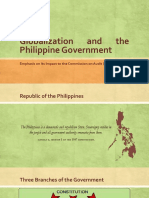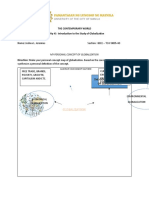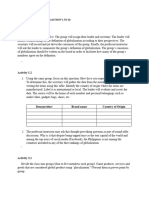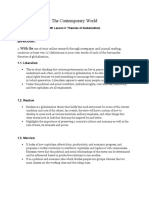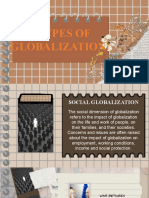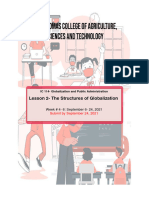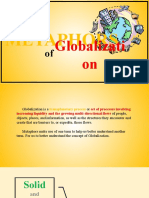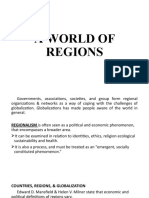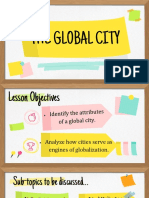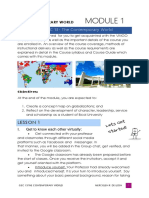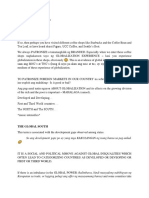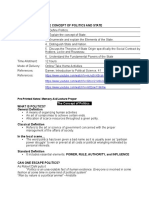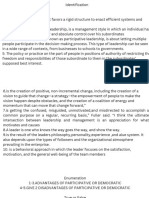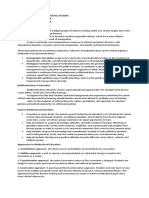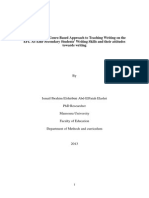0% found this document useful (0 votes)
213 views35 pagesUnderstanding Globalization Basics
This document provides an introduction to the study of globalization. It begins with the objectives of differentiating competing conceptions of globalization and agreeing on a working definition. It then discusses reasons for studying the world such as avoiding parochialism. The document outlines the history of globalization beginning with ancient trade routes. It examines various definitions of globalization and proposes a working definition as the expansion and intensification of social relations and consciousness across world-time and space. It also differentiates between globalism and globalization.
Uploaded by
Samonte, KimCopyright
© © All Rights Reserved
We take content rights seriously. If you suspect this is your content, claim it here.
Available Formats
Download as PDF, TXT or read online on Scribd
0% found this document useful (0 votes)
213 views35 pagesUnderstanding Globalization Basics
This document provides an introduction to the study of globalization. It begins with the objectives of differentiating competing conceptions of globalization and agreeing on a working definition. It then discusses reasons for studying the world such as avoiding parochialism. The document outlines the history of globalization beginning with ancient trade routes. It examines various definitions of globalization and proposes a working definition as the expansion and intensification of social relations and consciousness across world-time and space. It also differentiates between globalism and globalization.
Uploaded by
Samonte, KimCopyright
© © All Rights Reserved
We take content rights seriously. If you suspect this is your content, claim it here.
Available Formats
Download as PDF, TXT or read online on Scribd
/ 35

